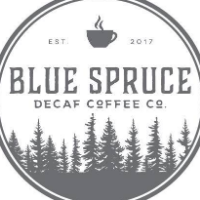The Ultimate Guide To Choosing The Best Decaf Coffee Beans For A Perfect Cup
For coffee lovers, the ritual of brewing that first morning cup is sacred. But for those looking to cut back on caffeine, the question often arises: is there caffeine in decaf coffee? The short answer is yes — but only in very small amounts. Decaffeinated coffee isn’t completely caffeine-free, yet it offers a flavorful alternative for those who love coffee’s aroma and taste without the jitters or sleepless nights that full-strength caffeine can bring.
Understanding how your favorite decaf coffee beans are made, and what makes the best decaf coffee bean, is essential if you want to enjoy the richness of coffee without compromise.
The Truth About Decaffeination: How Coffee Loses Its Buzz
Many coffee enthusiasts are curious about how decaffeination works. The most trusted and health-conscious methods include the decaf coffee Swiss water and decaf coffee water process techniques. Both methods are chemical-free and rely primarily on water to gently extract caffeine while maintaining the coffee’s natural oils and flavor compounds.
This is often referred to as decaf water processed coffee — an approach that ensures your cup retains all the qualities of high-quality coffee beans without the harsh aftertaste sometimes caused by chemical decaffeination methods. These methods make it possible to enjoy smooth, rich, and aromatic brews without sacrificing taste or health considerations.
is Decaf Coffee Safe for Everyone?
A common question among expectant mothers is is decaf coffee safe during pregnancy? According to health experts, moderate consumption of decaffeinated coffee is generally considered safe. Since is there caffeine in decaf coffee is a legitimate concern, it’s good to note that decaf usually contains about 2–5 milligrams of caffeine per cup — a fraction of the 70–140 milligrams found in regular coffee.
That said, not all decaf coffees are created equal. Choosing organic decaf coffee or coffee made through natural water-based processes ensures fewer chemical residues and a more wholesome beverage. Pregnant women and health-conscious individuals alike benefit from avoiding decaffeination methods that use solvents like methylene chloride or ethyl acetate.
What Makes the Best Decaf Coffee Beans?
When shopping for the best decaf coffee beans, there are several key factors to keep in mind:
Origin and Quality: The flavor of coffee depends heavily on its growing region. Look for single-origin beans from countries like Colombia, Ethiopia, or Costa Rica for distinctive flavor profiles.
Roast Level: Medium roasts tend to retain more of the bean’s original characteristics, while dark roasts bring out bolder, smokier notes.
Processing Method: The decaf coffee Swiss water or decaf coffee water process techniques are ideal for preserving flavor without chemicals.
Freshness: Always check the roast date and choose whole decaf coffee beans over pre-ground coffee for the freshest brew.
A brand dedicated to these principles, Blue Spruce Decaf Coffee Co., sources only premium, water-processed beans from sustainable farms. By focusing on quality and ethical sourcing, they’ve earned a loyal following among coffee lovers who want the best of both worlds — taste and health.
Why Water-Processed and Organic Decaf Are Better Choices
If you’re looking for the cleanest, purest cup of coffee possible, organic decaf coffee and decaf water processed coffee are the gold standards. The decaf coffee Swiss water process, developed in Switzerland in the 1930s, relies on osmosis and solubility principles to remove caffeine. No harsh chemicals are used — just pure water, temperature, and time.
This meticulous method protects the integrity of the bean’s natural flavors. It’s particularly ideal for those with sensitivities or anyone seeking a healthier alternative. Similarly, organic decaf coffee ensures that the beans were cultivated without pesticides, fertilizers, or synthetic chemicals — aligning with environmentally friendly practices and supporting both your well-being and the planet.
Brewing the Perfect Cup at Home
Even the best decaf coffee bean can fall flat without proper brewing. To get the most out of your decaf coffee beans, grind them just before brewing to retain their aroma and complexity. Use filtered water at around 200°F (93°C), and experiment with brewing methods like pour-over, French press, or AeroPress for different flavor experiences.
A great tip is to slightly increase the coffee-to-water ratio when brewing decaf — since it tends to taste milder, a touch more coffee per cup helps maintain body and depth. The result? A cup that’s just as bold and satisfying as regular coffee, but with minimal caffeine.
A Healthier Way to Enjoy Coffee
Switching to decaf doesn’t mean giving up your favorite beverage. In fact, choosing organic decaf coffee and decaf water processed coffee may enhance your coffee experience — especially if you’re trying to reduce anxiety, improve sleep, or manage health conditions sensitive to caffeine intake.
Brands like Blue Spruce Decaf Coffee Co. are redefining what decaf can be by prioritizing flavor, sustainability, and safety. Their commitment to naturally processed, high-quality beans ensures that every sip feels indulgent yet guilt-free.
So, whether you’re expecting, cutting back on caffeine, or simply curious about the craft behind a great decaf, remember that decaf coffee can be every bit as enjoyable as regular coffee — when you choose the right beans and brewing method.
Final Thoughts
The next time someone asks you, is there caffeine in decaf coffee, you’ll know the answer — yes, but just a trace. More importantly, you’ll understand why the best decaf coffee beans, especially those made through the decaf coffee Swiss water or decaf coffee water process, are worth seeking out. With the rise of organic decaf coffee and premium brands devoted to quality, decaf is no longer a compromise — it’s a choice for mindful coffee drinkers who value flavor, health, and sustainability in every cup.
